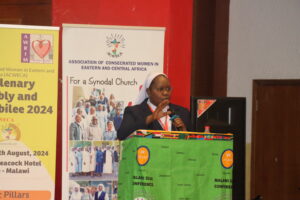KENYA: Land and Control over Resources are the Key Causes of Conflict in the Country-Report

A baseline Study
conducted by Catholic Justice and Peace Commission (CJPC) of the Kenya
Conference of Catholic Bishops (KCCB) to identify violence hotspots based on
analysis of risk factors and the measures to be put in place to mitigate
occurrence or recurrence of violence in the country has revealed that land and
control over resources are the key cause of Conflict in counties.
conducted by Catholic Justice and Peace Commission (CJPC) of the Kenya
Conference of Catholic Bishops (KCCB) to identify violence hotspots based on
analysis of risk factors and the measures to be put in place to mitigate
occurrence or recurrence of violence in the country has revealed that land and
control over resources are the key cause of Conflict in counties.
The study
which sought to identify the challenges and opportunities that present
themselves in addressing violence in the country also revealed that perceived
dominance by one group (social, economic, and politic) is potential trigger to
conflict while at the same time there is fear that devolution might intensify
disunity while youth empowerment continue to be a key factor to peaceful
electioneering.
which sought to identify the challenges and opportunities that present
themselves in addressing violence in the country also revealed that perceived
dominance by one group (social, economic, and politic) is potential trigger to
conflict while at the same time there is fear that devolution might intensify
disunity while youth empowerment continue to be a key factor to peaceful
electioneering.
According to
the study the situation of young people is even more interesting. 82% of the
people interviewed think that young people can influence politics even more
than politicians. But youth unemployment is considered by 74.2% as one of the
factors of greatest risk with regards to the stability of the Country, also due
to the tendency of unscrupulous politicians that manipulate the youth.
the study the situation of young people is even more interesting. 82% of the
people interviewed think that young people can influence politics even more
than politicians. But youth unemployment is considered by 74.2% as one of the
factors of greatest risk with regards to the stability of the Country, also due
to the tendency of unscrupulous politicians that manipulate the youth.
It was
anticipated that the study would inform the development of a programme for CJPC
to intervene in the transition into the devolved system of government. The
baseline study reached 582 respondents from seven counties (Kericho, Kisii,
Kisumu, Nairobi, Nakuru, Trans Nzoia and Uasin Gishu).
anticipated that the study would inform the development of a programme for CJPC
to intervene in the transition into the devolved system of government. The
baseline study reached 582 respondents from seven counties (Kericho, Kisii,
Kisumu, Nairobi, Nakuru, Trans Nzoia and Uasin Gishu).
The sample
included 531 individuals from youth groups and peace organizations, 32
constituencies, 28 districts, 16 District Commissioners, 18 area chiefs, and 17
diocese staff. Sixty two per cent of the respondents were below 30 years; 58
per cent were male; 88 per cent had secondary education and higher; and 65 percent
of the respondents were in some form of employment.
included 531 individuals from youth groups and peace organizations, 32
constituencies, 28 districts, 16 District Commissioners, 18 area chiefs, and 17
diocese staff. Sixty two per cent of the respondents were below 30 years; 58
per cent were male; 88 per cent had secondary education and higher; and 65 percent
of the respondents were in some form of employment.
The study
was conceptualized to complement the desk review study undertaken in April 2012
by the Constitution and Reform Education Consortium (CRECO) in an bid to
understand the history of the culture of violence in Kenya (with emphasis on
the 2007 General Election); election-related violence (with emphasis on power
politics and inequalities (land issues) and youth unemployment; and efforts to
develop and realize sustainable peace.
was conceptualized to complement the desk review study undertaken in April 2012
by the Constitution and Reform Education Consortium (CRECO) in an bid to
understand the history of the culture of violence in Kenya (with emphasis on
the 2007 General Election); election-related violence (with emphasis on power
politics and inequalities (land issues) and youth unemployment; and efforts to
develop and realize sustainable peace.
The study
points out that between 1992 and 1996 street children increased by 300%. Now
these have become street youth, prone to violence, ready to be recruited by
gangs used by unscrupulous politicians.
points out that between 1992 and 1996 street children increased by 300%. Now
these have become street youth, prone to violence, ready to be recruited by
gangs used by unscrupulous politicians.
Finally, the
study suggests some ways to ensure that such tragedies are not repeated, such
as the post –electoral violence in 2007-2008, which caused 1,300 deaths and
35,000 displaced, how to offer more resources to Counties for economic
development and the fight against youth unemployment.
study suggests some ways to ensure that such tragedies are not repeated, such
as the post –electoral violence in 2007-2008, which caused 1,300 deaths and
35,000 displaced, how to offer more resources to Counties for economic
development and the fight against youth unemployment.
By Pamela Adinda, AMECEA Online
News
News


